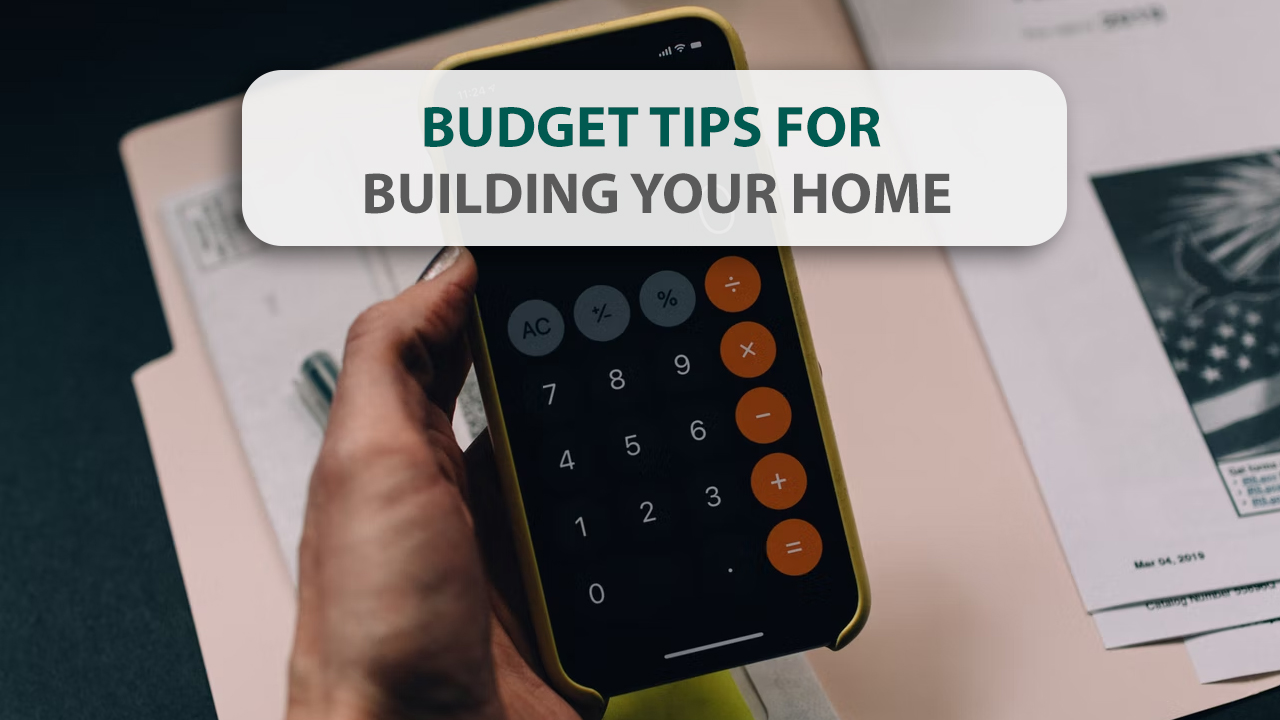Budget tips for building your home

When looking to build your new home, trying to set a budget is definitely easier said than done. It’s a challenge you’ll have to face head on, but when planned carefully it can ensure smoother sailing. Building a new home should be fun and exciting, so enjoy the process and stay switched on when budgeting.
Budgeting is doable, lay out the ground work ahead of time, stay committed and avoid stress!
Budget tips: Setting a realistic budget
There is definitely no exact formula or number generator when budgeting for your new home. Setting realistic goals in reference to your income, repayments and savings is crucial when trying to budget. Remember you’re looking to build a custom home, not choosing a house, so think about the design specifications that match your ideas. Think of the things that you want to be embedded within the designs for your new home, then distribute from your list of “wants” to a list of “must haves”. Don’t set a budget to just scrape through repayments, expect hidden fees or added costs to arise along the journey.
Budget tips: Map out a detailed plan
A detailed plan consists more of just repayments and building costs. Building for your home can often kick off before decisions of interior and design finishes have been finalised. Allow for this in your plan and have a budget for changes that can be made along the way. Budget adjustments on the fly can easily derail you in the process. Include in your plan a work schedule, blueprint, and all necessary materials for your new build. Set an estimated time target you wish to have your home built by and regularly check in to stay on track with progress.

Budget tips: Select design and features early
Some changes are almost necessary when building a new home, but making selections early can reduce this, or even avoid it entirely. Engage with discussions with your builder to make early selections straight away. Inclusions and specifications on bedrooms, kitchen, dining and living rooms, outdoor living spaces, storey height, and garage space should be discussed early in this stage. Tiles or timber and the relevant built in appliances can also be discussed early to fit in with your ideas.
Choose the right professionals
The right professionals that understand your respective decisions and ideas will be key to setting budget costs. Be clear and concise when making decisions and make sure you and your relevant professional are on the same page. Whether it be your builder, plumber, or architect, prioritise the non-negotiables that work for you and be clear on your budget. Don’t be afraid to ask questions or proceed with different options that align with your budgeting strategy. When your chosen professionals are all on the same page with your design, it eliminates any miscommunications or costly changes down the road.
Avoid budget blowouts
Now we’ve all heard about people getting the cheapest quotes and jumping on advertising deals. Most of these are just estimations and many of which are not realistic when considering your entire budget. Some builders leave out hidden costs when providing quotes to satisfy needs early. If a builder gives you a specified range that your costs will include, make sure you obtain a list of that specified range so you can keep track. The right builder will be honest with you from the beginning of the build until the end. They will provide you with an accurate fixed price for a quote and only use prime costs and provision costs, as last options where the item selections are unknown. This is where early selection becomes vital when budgeting for your design features.
Keep track of your spending
The thought of setting the budget and working towards it helps, but keeping track of your spending will allow you to hit or miss your budget goals. Keep an eye through each stage of the building phase and flag any overruns or design changes early. Track your expenditures through a specified budget planner, a simple google search for a budget template will provide what works for you if you do not already have one. Whether you’re tracking your expenditures for your weekly and monthly targets, write everything down in conjunction to any uprising building changes.

Final considerations
Make sure you’re considering your goals and what your new home will be used for when planning your budget. Decide whether you are going to build a family home or an investment property early. Keep in mind whether your new design is a forever home or a temporary change to list on the market in the future. The added features and design elements when deciding this will determine many cost factors or save on spending. Don’t forget to consider where you’ll be or are living when construction commences as this contributes to your planned budget. Your new home could take advantage of market demand, capital growth, and rising valuation in the future. Consult with your chosen professional and consider these financial benefits as added benefits from building a new home.
Stick to your budget through each step of the journey, keep track, and avoid the “May as Well” trap.
